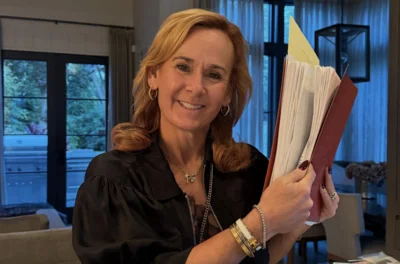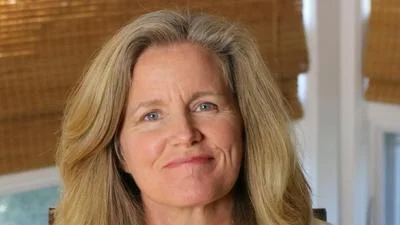DuPage County CDC Executive Committee met Jan. 2.
Here is the minutes provided by the Committee:
1. CALL TO ORDER
11:35 AM meeting was called to order by Chairman Tim Elliott at 11:38 AM.
11:35 AM OR IMMEDIATELY FOLLOWING HOME ADVISORY GROUP
2. ROLL CALL
PRESENT: Anderson, Berley, Chaplin, Chassee, Elliott, Grill, Krucek, Tornatore, Wiley
ABSENT: Bastian, Chrisse, Grasso
A visual roll call was performed
Staff Present: Mary Keating, Community Services Director; Jennifer Chan, Community Development Administrator; Barb Temborius, Community Development Specialist; Therese Witkus, Community Development Specialist; Christopher Donovan, Community Development Specialist; Dorin Fera, Community Development Specialist; Tom Schwertman, Community Development Specialist; Ben Leitschuh, Community Development Specialist, and Nicole Rashan, Principal Account Clerk.
State’s Attorney - Patrick Collins.
Others Present: Dawn Dina, Management Analyst - Dupage Mayors and Managers Conference.
3. PUBLIC COMMENT
There was no public coment.
4. APPROVAL OF MINUTES
A. CDC - Executive Committee - Regular Meeting - Dec 5, 2017 11:35 AM
There were no additions or changes to the Minutes.
On a voice vote, the Minutes were approved.
RESULT: ACCEPTED [UNANIMOUS]
MOVER: Elizabeth Chaplin, District 2
SECONDER: Kevin Wiley, District 6
AYES: Anderson, Berley, Chaplin, Chassee, Elliott, Grill, Krucek, Tornatore, Wiley
ABSENT: Bastian, Chrisse, Grasso
5. 2018 CDBG/ESG SCORING APPEALS-IF NECESSARY
Keating stated that there were no appeal requests made. She noted that this was the 19th time she has been involved in bringing forth CDBG funding recommendations. Fifteen/sixteen years ago appeals were quite common. Over the last several years, an extremely objective scoring process has developed, along with educating the municipalities and nonprofits on developing strong applications. Technical assistance is provided before applications are submitted and after scores are received explaining where their application could have been stronger. Keating complimented staff on a great job and felt that the lack of appeals meant that staff provided a good, objective analysis, as well a the proper amount of technical assistance and explanations to applicants. Berley and Elliott also commended staff. Berley went on to say that he also sat on the committee during the times when appeals were a common occurrence. Those meetings were quite taxing.
6. ACTION ITEMS
A. Action Item -- Approval of Staff's FY2018 CDBG/ESG Application Funding Recommendations.
Keating said the 2018 funding recommendations are based on 2017 funding allocations. The actual dollar amount is unknown until an actual federal 2018 budget is passed. Currently the government is operating on a Continuing Resolution. The current version in the Senate has CDBG at level funding; HOME funding is down. It is hopeful that the same amount of CDBG funding is awarded as last year. She noted that even if the overall funding is the same, the amount received by the County could vary due to either new entitlement communities or entitlement communities dropping out. For this reason, when funding recommendations are eventually brought to County Board for approval, language is included in the Action Plan to address how the County plans to handle the funding variation under a certain threshold amount. This contingency language makes it possible for a minimal change in funding to be made without repeating the whole approval process.
Keating said the summary table on page 7 of the packet broke out the general funding categories. Specifically mentioned was the Rollover of Unobligated Funds and Program Income category. These dollars either came from program income, projects that had to be cancelled or ones that came in under budget.
The actual project recommendations started on page 8. The “B List” was explained to the Committee as projects that would be funded if for some reason more funding would become available. The B List prevents the need to repeat the public hearing, the public comment period, etc. and having to redo the whole approval process.
Applicants for the Neighborhood Resource Center (NRC) and Housing/Homeless (H&H) were instructed to request their averaged amount from the past 2 years of funding. Some followed this suggestion and others just asked for the amount they requested the previous year. That is the reason for the variation between the requested amount and the awarded amount, and why a couple of projects received more funding than what the applicant asked for.
The DuPage County Care Center’s project was previously approved to be forward funded out of 2018 monies.
Anderson had reviewed the list of agencies and felt that there should be a way for agencies who provide the same services to consolidate or merge together. As an example she mentioned the food pantry in Wayne and questioned the need for separate food pantries. Keating stated that merging of agencies discussions is not something the County controls, but up to the board of directors of the various nonprofit agencies. She did inform the committee that last year Giving DuPage held a panel, for executive directors only, to discuss consolidation and mergers such as what Loaves and Fishes and Naperville CARES did. Keating is aware of conversations of this nature taking place between other nonprofits who are looking to merge. The County is happy to foster this concept. She said that through the Human Services Grant fund, additional scoring points are awarded to merged agencies when the merged agencies had been previously funded. The merged agency has the ability to request up to $80,000 versus $50,000.
Chaplin stated with the current tax law changes, DuPage might be losing nonprofit organizations. People can no longer deduct their donations. Keating agreed stating it is a tumultuous time for nonprofits. Elliot commented that nonprofits who relied on state aid have taken a beating.
Chaplin said as far as food pantries, each township and some churches have food pantries. It would be difficult for some individuals to travel from Willowbrook to Wayne to seek food assistance. She felt that there were not enough food pantries throughout the County for residents who benefit from this type of assistance.
In reference to the Administrative funding line, Elliott understood that there was a regulatory cap placed on the funds and asked whether there was any probability that the County would come in underneath this cap, thus coming up with additional funding for the B list projects. Keating said yes it is likely the County would come in under the caps. When this happens these funds are rolled over into the next year. She directed the Committee to look at page 7, under 2018 Planning Assumptions, the Rollover of Unobligated Funds and Program Income. Some of that amount comes from the previous year’s Admin. Elliott clarified that it would not go to the B list for this year because the Department would not know the amount until the end of the year. Keating said yes.
On Page 5 in reference to the fees pertaining to the Continuum of Care Consultant, Elliott asked who the consultant was and who pays for the other portion of the fees. Keating said that other portions of the fee comes from a Continuum of Care planning grant. The consultant’s name is Peg White Lijewski. Her firm is Optimum Management Resources. She is incredibility well versed in the Continuum of Care application that the community has to submit in order to receive homeless funds. The portion of her work that is tied to creating the consolidated application, on behalf of all the organizations in DuPage County, can be paid from Community Development Grant (CDBG) funds. Nothing done with the Continuum of Care comes from County General funds. Elliot asked if this was a firm that the County had worked with for awhile. Keating said yes, there is a longstanding relationship and in fact, her contract renewal was on the Health and Human Services (HHS) agenda this morning.
Next Elliott asked about the Homeless Management Information System (HMIS) listed on page 7. He wanted to know what it was and who maintained it. Keating stated that every organization that receives HUD homeless funds in the country is required to participate in a homeless management information system, which is a shared data management system. In DuPage County there are 17 or 18 different organizations that utilize HMIS. The Department of Community Services is the lead agency for HMIS in DuPage County, as well as the lead for the Continuum of Care.
HMIS reduces duplication of services, streamlines referrals and assists case managers to better coordinate the needs of the client. Elliot said it sounded like a great tool and asked if it worked well in practice. Keating said yes, in fact the program allows information aggregation about homeless and at risk of homeless individuals allowing for better tracking of services provided, and if service improvements can be made.
Chaplin said that a contract with Cook County was approved at the HHS committee. Keating said that it is a shared platform with Suburban Cook County. Client information is not shared between DuPage and Cook, rather sharing training resources and shared report information. It takes a person who understands databases, HUD’s homeless program regulations, and how case management works; similar to how electronic medical records requires multidisciplinary knowledge (data and medical)
Wiley said that HMIS is not a software application but a system definition. Keating said HMIS is a generic name. The system used is HIPPA compliant but no health information is shared. Permissions are completely locked down all the way to the “user level”. There is no public access. Clients all have the option to opt out so none of their information is shared. Wiley asked then if a release of information has to be provided by the client. Keating said yes.
Elliott said he did not see a breakout of the Housing Resource Unit for $166,000 and asked for clarification. Keating said that the Housing Resource Unit is a unit within the Department of Community Services in the Housing Supports and Family Self Sufficiency area. This money supports case managers working with individuals who are either homeless or at-risk of homelessness with connecting them with housing; tenant/landlord issues; etc. Since this covers in-house staff, Elliott wanted to know why this was not covered under Admin. Keating said because it is an actual program. It has been done as a set aside for at least a dozen years at $166,000.
Elliott asked where Wayne Township Food Pantry gets its funding; if the township itself was the first source of funding from its general fund for the underlying food pantry. Schwertman stated that it is a nonprofit arm outside of the township general revenue, and its funds come from township grants and private individuals. Chan stated that in order for CDBG funds to be used, per regulations, the food pantry has to be a separate entity from government activity. Schwertman said there will be a 20-year lease between the Township and the food pantry nonprofit with specific language stating that the Township will not use any of the food pantry space. Use of block grant funds for the general conduct of government is specifically prohibited. If any township activities were to take place within the new space, the project would be ineligible.
There were no other questions.
On a voice vote, the motion passed.
RESULT: APPROVED [UNANIMOUS]
MOVER: Kevin Wiley, District 6
SECONDER: Elizabeth Chaplin, District 2
AYES: Anderson, Berley, Chaplin, Chassee, Elliott, Grill, Krucek, Tornatore, Wiley
ABSENT: Bastian, Chrisse, Grasso
7. OTHER BUSINESS
Wiley praised Keating and Chan on the excellent job they have done.
Chan said staff was in the beginning phase of the 2018 Action Plan. At next month's meeting she expects to bring to the Committee an update on the housing projects.
8. ADJOURNMENT
Chaplin made the motion, seconded by Berley to adjourn the meeting at 11:58am.
On a voice vote, the motion passed.
9. NEXT MEETING DATE - FEBRUARY 6, 2018
http://dupage.iqm2.com/Citizens/FileOpen.aspx?Type=15&ID=6251&Inline=True






 Alerts Sign-up
Alerts Sign-up